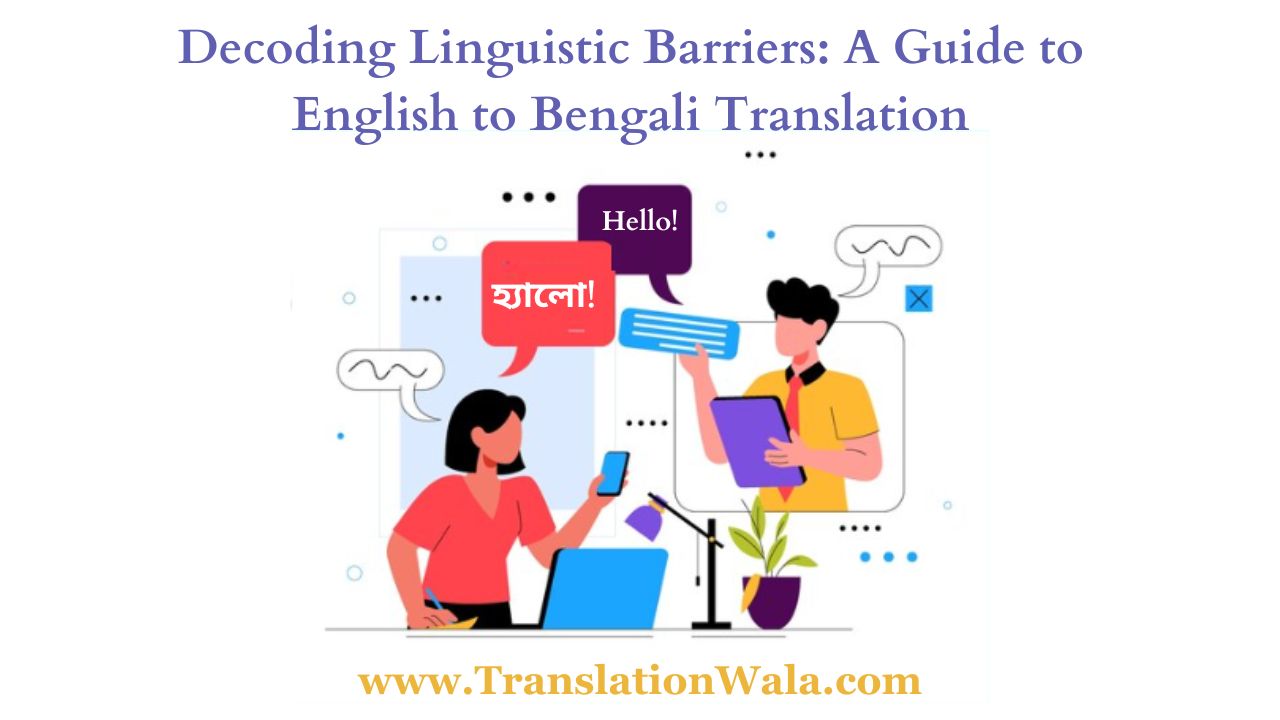As the world gets smaller because of globalization, it is more important than ever to be able to communicate clearly across languages. Translation is a very important tool for people who want to learn Bengali or English. If you know how to English to Bengali Translation, you can connect with a large and active language group. This is true whether you’re a businessperson, a student, or someone who is just interested in another culture.
The Beauty and Complexity of Bengali
Bengali, which is also called Bangla, has a long history of literature and is spoken by more than 265 million people around the world, mostly in Bangladesh and the Indian state of West Bengal. Because it sounds so sweet and musical, people call it “the sweetest language in India.” Bengali has a special script that comes from the old Brahmi script and makes the language look even more beautiful.
Bengali has roots in a lot of Indo-Aryan languages, but it can be hard to translate because of the way it sounds.
- Word Order: The word order in Bengali is subject-verb-object (SOV), which is different from the English word order of subject-verb-object (SVO). This might mean that lines need to be carefully rearranged while they are being translated.
- Verb Conjugations: Different types of mood, person, and politeness affect how verbs are conjugated in Bengali. To accurately translate these subtleties into English, you need to know a lot about language.
- Honorifics: Bengali uses a lot of honorifics to show respect and social standing. It can be hard to translate these details into English, which doesn’t have the same rules.
- Idioms and Cultural References: There are many words and proverbs in both English and Bengali that come from their own cultures. It takes more than language skills to translate these phrases. You also need to be aware of other cultures.
Strategies for Effective English to Bengali Translation
- Employing Qualified Translators: Professional human translators are essential for translating important papers or messages with a lot of meaning. Professional translators know how complicated both languages are and can make sure that the translation is correct and fits with the culture.
- Machine Translation Tools: It can be helpful to start with machine translation tools, especially for short sentences or words. But make sure you carefully read the results every time, because machine translation can often give you precise and wrong versions.
- Context is Key: The line or phrase’s meaning has a big effect on how it is translated. Think about who you’re writing for, why you’re writing it, and any business terms or words that you might need to use.
- Cultural Sensitivity: Be aware of culture differences and don’t translate exactly words and phrases that might not have the same meaning in Bengali. It’s sometimes necessary to explain the idea or find an option that fits with the culture.
Also Read: Unlocking Ideas: English to Gujarati Translation Magic
Beyond Mere Words: The Cultural Nuances of Translation
Real translation is more than just changing words from one language to another. It means knowing about the culture in which the original work was written. Here are some ways to make sure that your English to Bengali translation are sensitive to different cultures:
- Addressing Formality: When someone speaks Bengali, the amount of politeness changes based on their relationship with the listener. When you’re translating, keep this in mind so you don’t accidentally offend someone.
- Understanding Nonverbal Cues: In Bengali, body language and movements are very important for communicating. Think about how these body language cues might affect the meaning of text that has been translated.
- Adapting Humor and Idioms: Figurative and funny words can be hard to explain. Give another word or phrase that means the same thing as the term, or look for a Bengali phrase that says the same thing.
Resources to Assist Your Translation Journey
- Online Dictionaries: For help with words, use online dictionaries or specific English-Bengali dictionaries.
- Language Learning Resources: Learning simple Bengali language and sentence structure will help you understand things better.
- Cultural Exchange Forums: Talk to people who speak Bengali as their first language in internet groups or language exchange programs to learn about the society and slang.
The Power of Translation
As the world becomes more linked, being able to get past language hurdles like those between English and Bengali is very useful. Correct translation that takes into account different cultures helps people understand each other, works well with others, and opens up new experiences. When you start the process of English to Bengali Translation, you enter a world with a lot of language history and a lively group of people from all over the world.
